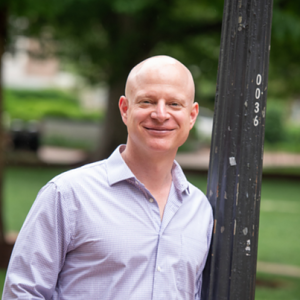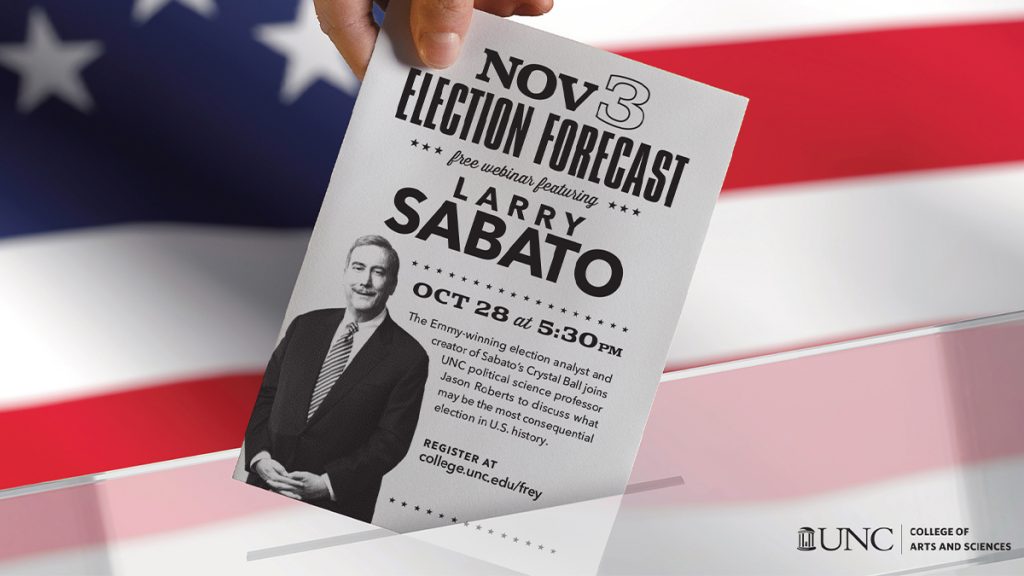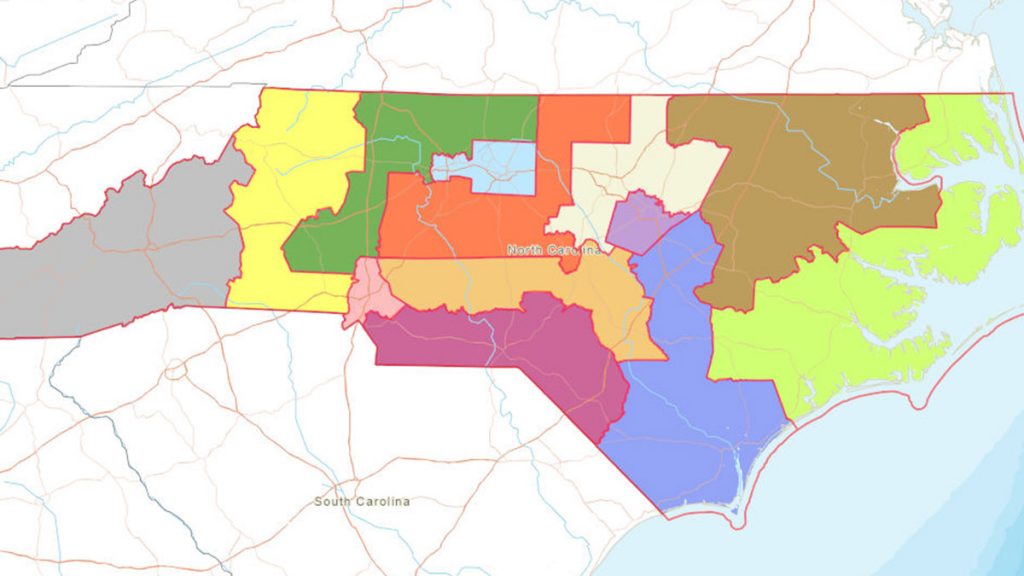Promote Democracy
Promote Democracy
Environmental Scan
As a leading global, public research university, we play a key role in the exchange of ideas and the education of informed citizens. Carolina is exceptionally well positioned to address contemporary public issues and challenges through education, research and service. Furthermore, as a higher education institution rooted in the American South, a frank confrontation with our region’s history of racial and ethnic violence and exclusion is a necessary part of inclusive democratic citizenship. This commitment continues today with Carolina’s pledge to support and improve democratic citizenship in the state, the nation and around the globe.
Carolina’s commitment to education for the public good is embedded in the 1789 Act establishing the University to “endeavor to fit [the rising generation] for an honorable discharge of the social duties of life, by paying the strictest attention to their education.” However, at the time of that Act, and for the next two centuries, most of the rising generation were not welcome at Carolina, whether for reasons of race, ethnicity, gender or class. Even now, the University continues to work toward equity and inclusion and is fully committed to serving the people of North Carolina.
Today, as in times past, humanity faces many challenges, including the rise of populist and nationalist movements, political polarizations, pollution and climate issues, poverty, public health crises, food and water insecurity, violence, terrorism and income inequality. These are global challenges that are brought home to us in North Carolina. And they are intensified by the great challenges presented by the novel coronavirus pandemic.
A Carolina education must focus on the skills needed for public engagement, including listening, perspective-taking, civil discussion, and frank disagreement, along with critical evaluation of evidence, probabilistic thinking and analysis of causal pathways. This rigorous academic training must be paired with participation, listening, and public-spirited problem solving in the political and civic sphere. And Carolina must foster discovery and innovation to help humanity recover from the medical, social, cultural and economic impacts of the pandemic.
We will build on our strong foundation of student self-governance and high rates of community and civic engagement for the betterment of our campus, our state, our nation and our world.
Strategic Objectives and Opportunities
Inspire a culture of listening, respect, and civil discussion for advancing democratic values and effectiveness in our campus community, North Carolina and the world.
Objective 5.1
Actively engage as diverse citizens responsible for the institutions of American democracy.
Strategic Opportunities
- Coordinate a “Carolina Votes” initiative. Involve Faculty Governance, Employee Forum, Student Government, GPSF, Campus Y and Carolina Center for Public Service, among others, to organize educational events, voter registration and voter education. Emphasize engagement via alternative methods during the pandemic.
- Measure student, staff and faculty understanding of and participation in the 2020 elections
- Encourage and assess student, staff, and faculty participation in the 2020 Census.
- Provide opportunities for students to intern in, or work with, democracy‐related community organizations, including electoral campaigns, social movement organizations and government offices through the Carolina Center for Public Service and the Campus Y (Partnership with Strategic Initiative 6: Benefit Society).
- Host (virtually or in person) debates and other opportunities for candidates for public office to engage directly with students, staff and faculty.
Objective 5.2
Work constructively across differences in society, starting by promoting respect and listening.
Strategic Opportunities
- Provide opportunities for conversations on– and off–campus that bring students, staff and faculty into respectful dialogue with people they disagree with; facilitate campus forums to promote honest, frank discussion and dissent on major campus and public issues; build the capacity to engage constructively across differences with evidence, intellectual humility, and respect. Involve the Institute of Politics, Roosevelt Institute, College Democrats and Republicans, Black Student Movement, Campus Y, Institute for the Arts and Humanities, Philosophy, Politics & Economics, Program for Public Discourse, Southern Futures and other campus units.
- Develop a faculty expert response system to provide evidence‐based context for visiting speakers, along with mechanisms for audience feedback, to promote greater speaker quality and audience participation (possibly link with IDEAs in Action’s General Education Curriculum’s Campus Life requirement).
- Develop the Communication Beyond Carolina capacity requirement in the IDEAs in Action General Education Curriculum to provide all undergraduates with strong skills in communication and listening with different audiences and publics.
- Conceptualize and develop the UNC Program for Public Discourse, emphasizing respectful dialogue in classes and public events.
- Develop a Dialogues in Global Democracy series: bring pairs of scholars, leaders or practitioners to campus for 1-2 day visiting events. They would each give public talks in which they engaged with one another’s ideas and viewpoints in public. In addition, they would spend time with groups of students and faculty thoughtfully and carefully considering the implications and synergies between their viewpoints (in partnership with Strategic Initiative 7: Globalize).
- Provide voluntary mentorship and training for instructors to encourage respectful, evidence-based debate and discussion across major differences in the classroom. (in partnership with the School of Law, Program for Public Discourse, Department of Communication, IDEAS in Action Ideas, Information and Inquiry courses and first-year seminars).
Objective 5.3
Explore how humanity’s highest purposes and potential can be realized through democracy and can help the democracy thrive.
Strategic Opportunities
- Develop and support a Democracy Track in the IDEAs in Action General Education Curriculum to allow students to focus on democratic competencies regardless of major.
- Develop and support a Global Democracy Training Program/Certificates available for graduate students across all units. (partnership with Strategic Initiative 7: Globalize)
- Develop and support the Center for Information, Technology and Public Life.
- Create a Carolina Civic Health Project to collect data about civic engagement, knowledge, opinions, and ideas in North Carolina communities (data will be available for public analysis and will also be the basis for an annual Carolina Civic Health Report published by UNC).
- Through the Carolina Civic Health Project, produce high quality resources, policy briefings, reports, recommendations, etc. for the state legislature, and potentially for more national forums with respect to democratic functioning.
- Create a Democracy Research Hub to support interdisciplinary, collaborative research on democratic governance, systems, and culture, with the goal of making Carolina the leader in research on democracy and building democracy research teams across schools and involving undergraduate and graduate students alongside faculty. (partnership with Strategic Initiative 4: Discover; and Strategic Initiative 7: Globalize)
Captain
Jason Roberts
Professor Political Science
Jason M. Roberts is a professor of political science. He is a specialist in American politics. His teaching and research focus on the U.S. Congress, American Political Development, and Election Administration in the United States. He also serves on the Orange County, NC Board of Elections.





